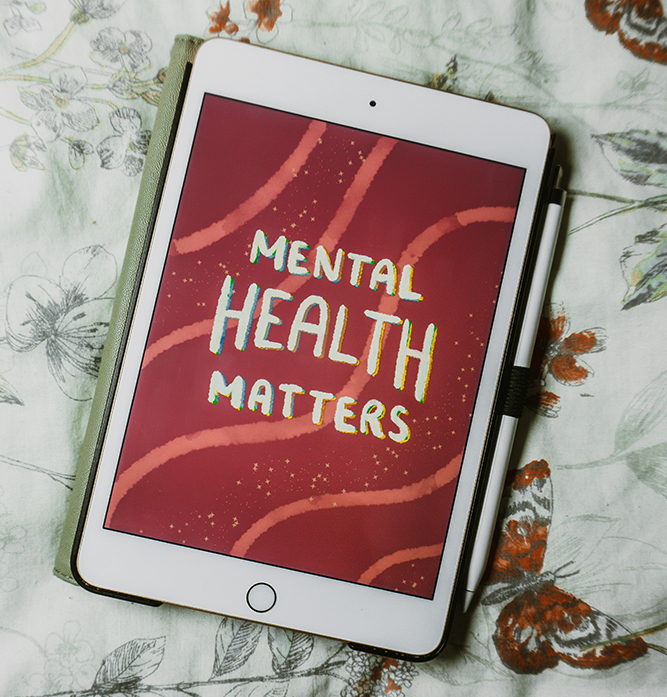Discussing Social Media’s Role
by Kent Yang | Staff Writer

Did you know May is Mental Health Awareness Month?
Back in 1949, Mental Health Awareness Month—which was then Mental Health Awareness Week—was launched by Clifford W. Beers, the founder of Mental Health America. After struggling with his own mental health and being admitted to multiple public and private institutions where he witnessed abuse and other cruel and neglectful treatment given to patients with mental illnesses, he exposed these practices and founded the National Committee for Mental Hygiene, later renamed the National Mental Health Association and known today as Mental Health of America. The organization’s goal was to improve the quality of life and care for mental health patients and to raise awareness about mental health illnesses and psychological disorders.
A 2020 report by the World Health Organization revealed that approximately one billion people worldwide are affected by the global mental health crisis. In low-income countries, more than 75% of people with a mental health disorder do not receive treatment. Even in the United States, where society has come a long way with how mental health issues are handled, recent studies still indicate that many Americans are not seeking—or don’t have the resources to get—treatment for their mental health disorders. In 2021, the Substance Abuse and Mental Health Services Administration (SAMHSA) reported that 1 in 5 U.S. adults experience mental illness each year. In that same year, the National Institution of Mental Health reported that only 47% of U.S. adults with any kind of mental illness had actually sought treatment. These numbers are staggering to say the least.
In the early 2000’s, social media platforms such as Myspace, Facebook, LinkedIn, and Twitter gained traction with their online audience by offering members the ability to connect with other users globally via instant messaging and audio/video calling. This social network could include friends, family, colleagues, and even strangers. Platforms like Facebook also introduced the ability to look up someone’s profile by name, email, or phone number— a feature new to many users at the time. With all of this innovation, the speed at which users were able to network was groundbreaking. As early as 2004, social media had become mainstream, and by 2009, Facebook was the most popular social media platform, surpassing Myspace with more than 500 million users.
The rise of social media meant more and more people were spending their time online, but this became especially true for young adults. In a 2022 survey conducted by the Pew Research Center, 95% of teenagers between the ages of 13 and 17 reported using social media, with more than a third spending an average of 3.5 hours each day on these applications. For some, this affected their mental health. In the spring of 2023, United States Surgeon General Vivek Murthy, MD, MBA, issued an advisory titled “Social Media and Youth Mental Health,” which highlighted mounting evidence for social media’s detrimental effects on young people’s mental well-being, citing it as “the defining crisis of our time.”
Social media itself can be an addiction, and one that can impact a person’s mental well-being by perpetuating the “perfect illusion.” For most people, when we post on social media, we are creating a highlight reel of our best and brightest moments. But it’s easy to develop the misconception that these moments represent everyday life, which can lead to comparison and feelings of social inadequacy, enabling negative mental health consequences like low self-esteem, perfectionism, anxiety, and self-isolation. In the modern age, social media has changed how individuals talk and bond, but it is crucial to be aware of its effects on mental health. Understanding the issues technology can create allows individuals to come up with strategies to help deal with them, harnessing the benefits of technology while maintaining our own personal and mental well-being.
If you or someone you know needs help with mental health, here are some resources:
MWCC’s Counseling and Wellness Services (Students/Staff/Faculty ONLY)
- Counseling Services appointments available – contact Leeanne Hadsel, Senior Mental Health Counselor at lhadsel@mwcc.mass.edu or visit Student Services at the Gardner campus.
- Wellness Room (for meditation, yoga, etc.) available Monday through Friday from 11:30 to 1:30 pm. Book through the Student Services office.
- Be Well at the Mount – MWCC offers mental health support through Be Well at The Mount. Here, students have access to more pathways for mental health support including:
- 24-hour, 7 day a week, 365 day a year access to counselors
- Free telehealth visits
- Virtual prescribing
- Call the 24/7 Support Line at 833-434-1217 or visit bewellthemount.com
Massachusetts Behavioral Health HelpLine
- Call or Text: 833-773-2445
- Live chat: https://www.masshelpline.com/
- Crisis and Mental Health Support 24 hours per day, 365 days per year
- It’s free, confidential, and no health insurance is required.
- Real-time interpretation in 200+ languages
- Deaf or hard of hearing? Contact MassRelay at 711
National Mental Health Hotline
- 866-903-3787, free and confidential service that can answer questions and provide information about mental health treatment centers
NIMH Information Resource Center
- 866-615-6464, live online chat and email service available Monday through Friday, 8:30 AM–5 PM ET
NAMI HelpLine
- 800-950-NAMI (6264), free peer-support service that provides information, referrals, and support to people with mental health conditions, their families, caregivers, and mental health providers
988 Suicide & Crisis Lifeline
- Call or text 988 or chat at 988lifeline.org, 24/7 to connect with a trained crisis counselor
Crisis Text Line
- Text HOME to 741741 for free, 24/7 support
Comments are closed.